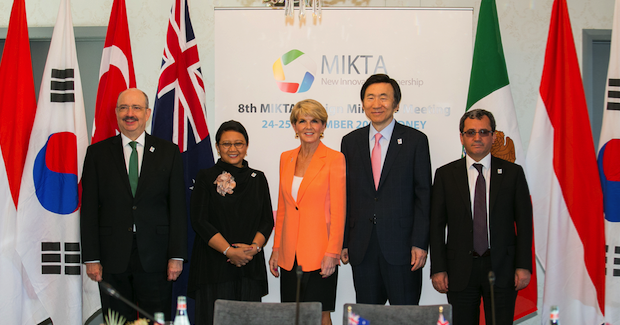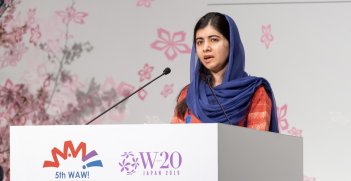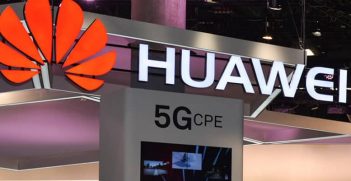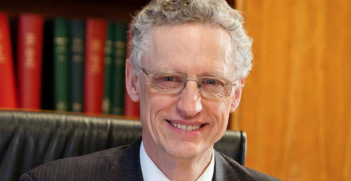MIKTA and the G20

The G20 Foreign Affairs Ministers met this week in Buenos Aires and one of the items on the agenda was a meeting of ministers from the so-called MIKTA nations: Mexico, Indonesia, Korea, Turkey and Australia.
While American attempts to scuttle the Iran deal, election results in Venezuela and the state of the Argentinian economy stole the headlines, the meeting of MIKTA foreign ministers is perhaps of more interest to observers of Australian foreign policy because it goes to the heart of ongoing debates about Australia’s place in the world and how it does diplomacy.
But first, what is MIKTA?
Largely unknown outside the world of diplomacy, MIKTA is a grouping of middle power states that was formed on the margins of the UN General Assembly in 2013.
MIKTA foreign ministers now meet three times a year. MIKTA has established its own website, stating a common vision to ‘deepen bilateral ties, and find common grounds for cooperation’.
However, unlike the other coalitions that populate the G20 – namely the G7 and the BRICS – MIKTA countries do not explicitly coordinate their negotiation position ahead of G20 meetings, nor is there a leaders’ level summit.
Whether MIKTA will amount to anything more, or begin to resemble other coalitions inside the G20 with leader level meetings and formal processes, remains to be seen.
In this context, a key question for policymakers is: should Australia seek to formalise MIKTA as a coalition within the G20?
One of the common arguments in support of MIKTA is not only that it is a valuable mechanism for Australia to strengthen bilateral ties, but also that it could develop into a useful “middle power” grouping with the potential to shape agendas in the G20.
However, there are good reasons to believe that Australia’s scarce diplomatic resources would be better spent elsewhere.
First, it is not clear that each of the MIKTA nations identify as middle powers or that they have the behavioural characteristics commonly associated with middle powers, such as the tendency to pursue multilateral solutions to international problems. Turkey for one has never openly declared itself as a middle power and appears to view MIKTA mainly as a means to enhance its international prestige for domestic purposes.
Second, as a grouping MIKTA has struggled to find a common set of issues to pursue. While it has released joint statements from time to time on issues such as climate change, it has yet to develop a coherent platform to pursue in international forums.
And this leads to the most important reason to be cautious about formalising MIKTA: that there are likely to be better ways to build coalitions to advance Australia’s interests.
One way is to build coalitions around issues, rather than uncertain power groupings. As the Foreign Policy White Paper highlighted, Australia’s relative economic weight in the world is set to decline in coming years as nations like China and India continue to grow, and coalitions built around power rather than issues are unlikely to serve us well.
Traditionally, building coalitions around issues has been one of Australia’s great strengths. The classic example was the role Australia played to help establish the Cairns Group in 1988, a coalition of around 20 agricultural export countries that worked to put agriculture on the agenda of the international trade negotiations.
Another way is to focus on coalitions in Asia, a region which has quickly become the centre of economic gravity. For example, recent efforts to deepen ties with ASEAN are likely to bear more fruit than anything MIKTA will achieve in the near future.
As the distribution of power shifts in the international system, Australian policymakers will need to think carefully about where to focus Australia’s scarce diplomatic resources, including the types of coalitions to pursue. Whether MIKTA should be one of them remains an open question.
Dr Christian Downie is an Australian Research Council DECRA Fellow in the School of Regulation and Global Governance at The Australian National University. He was recently announced as the winner of an AIIA Early Career Research Impact Award.
This article is published under the Creative Commons Licence and can be republished with attribution.





